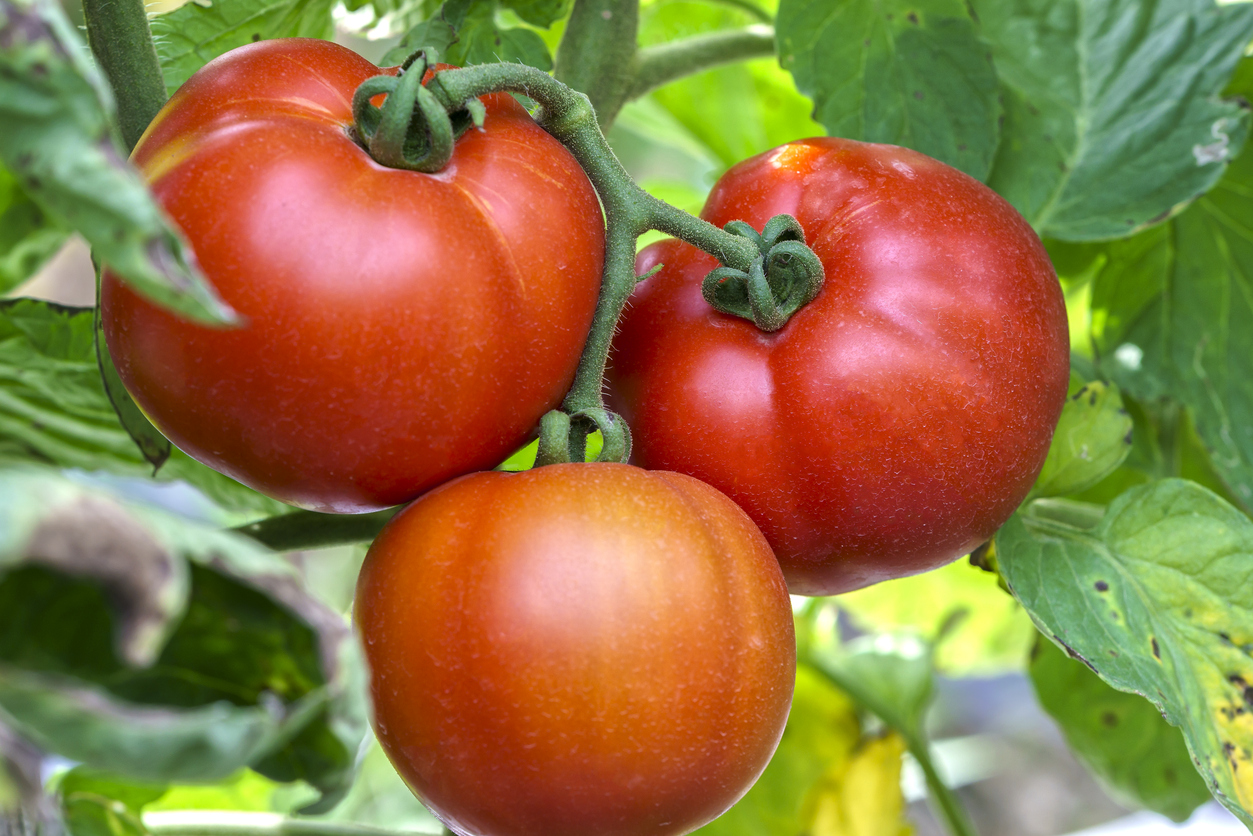
Scientists Discover Genes For Bigger Tomatoes and Eggplants
March 12, 2025| |
Researchers led by teams at Johns Hopkins University and Cold Spring Harbor Laboratory have discovered new genes in tomatoes and eggplants that control how many seed cavities (locules) will grow.
The research is part of a project to map the complete genomes of 22 crops in the nightshade genus, which include tomatoes, potatoes, and eggplants. The researchers compared the genome maps and traced how the genes evolved. They found that in the past, more than half had been duplicated. The team at the Boyce Thomson Institute used CRISPR-Cas9 gene editing technology to tweak one or both duplicates of a gene, and collaborators at Cold Spring Harbor grew the engineered plants to see how the tweaks changed the mature plants.
The genetic duplicates called paralogs ended up being important for determining traits such as flowering time, fruit size, and fruit shapes. Turning off both copies of the CLV3 gene paralogs in the forest nightshade native to Australia, for example, resulted in plants that are not viable to sell as produce in grocery stores. However, editing one copy of CLV3 led to larger fruits. In the African eggplant, a species grown across Africa and in Brazil, the researchers identified the gene SaetSCPL25-like that controls the number of seed cavities, or locules, inside the fruit. When they edited the SaetSCPL25-like genes in the tomato plant, the researchers found they could grow tomatoes with more locules. The more numerous the locules, the bigger the tomato.
"This work shows the importance of studying many species together," Schatz said. "We leveraged decades of work in tomato genetics to rapidly advance African eggplants, and along the way we found entirely new genes in African eggplants that reciprocally advance tomatoes. We call this 'pan-genetics,' and it opens endless opportunities to bring many new fruits, foods, and flavors to dinner plates around the world."
For more details, read the news article in Johns Hopkins University Hub.
| |
You might also like:
- Experts Use Genome Editing to Make Tomatoes Yield Earlier
- Researchers Discover Gene for Improved Tomato Flavor and Shelf-life
- Tomato Pan-Genome Reveals 4,873 Undocumented Genes
- Japanese Scientists Complete Genome Sequence of Eggplant
- Japanese Scientists Boost Beta-carotene in Eggplant
Biotech Updates is a weekly newsletter of ISAAA, a not-for-profit organization. It is distributed for free to over 22,000 subscribers worldwide to inform them about the key developments in biosciences, especially in biotechnology. Your support will help us in our mission to feed the world with knowledge. You can help by donating as little as $10.
-
See more articles:
-
Plant
- New Accelerated Breeding Platforms Introduced for Specialty Crops
- Australian OGTR Invites Public Comments for Field Trial of GM Canola
- Experts Discuss Regulatory Frameworks for New Breeding Techniques in ISAAA Webinar
- Scientists Discover Genes For Bigger Tomatoes and Eggplants
-
Animal
- Unlocking the Potential of Animal Biotech in the Philippines: Research Updates and Regulatory Prospects
-
Food
- Biotech Food Distrust Linked to Messaging Gaps
-
Health
- Sainsbury Laboratory's Jonathan Jones Selected As A 2025 Wolf Prize Laureate in Agriculture
-
Environment
- Nigeria Becomes the 80th Member of the International Union for the Protection of New Varieties of Plants
-
Read the latest: - Biotech Updates (January 14, 2026)
- Gene Editing Supplement (December 17, 2025)
- Gene Drive Supplement (February 22, 2023)
-
Subscribe to BU: - Share
- Tweet

